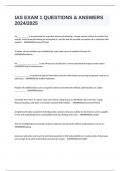Engels
Introduction
1 Inleiding
2 Having a conversation
2.1 Context
Oefening 1.1: Syllabus p 3
1. Cultural 5. Economic
2. Economic 6. Historical
3. Historical 7. Social
4. Social 8. Cultural
Oefening 1: Cultural differences (PowerPoint presentatie)
1. American 5. American 9. Japanese
2. American 6. Japanese 10. American
3. Japanese 7. American
4. Japanese 8. Japanese
Oefening 1.2: Syllabus p 3-4
Oefening 1
1. Nice to meet you. My name Pierre.
Nice to meet you. My name is Pierre.
Basics: conjugation of the verb ‘TO BE’
Positive Negative
I Am I am not / ‘m not
you are you are not / ‘re not /
aren’t
It Is it is not/ ‘s not/ isn’t
we are we are not/ ‘re not/
aren’t
you are you are not / ‘re not/
aren’t
they are they are not/ ‘re not/
aren’t
2. Yes, I am thinking English is very important for this kind of work because everyone uses
English in business nowadays.
Yes , I am thinking think English is very important for this kind of work because everyone
uses English in business nowadays.
Common mistake: wrong usage of tenses
- Continuous form: I am thinking
- vs. Simple form: I think
è Difference?
1
,3. Well, it’s a business studies degree and I’m interesting in marketing.
Well, it’s a business studies degree and I’m interesting interested in marketing.
Basic grammar: derived forms of verbs
Present participle Vs Past participle
to interest interest – ing interest -ed
to excite exciting excited
to bore boring bored
to terrify terrifying terrified
4. I from a small town in Northern Switzerland.
I am / ‘m from a small town in Northern Switzerland.
Basic grammar: contracted forms
They said they’d be home at six. would
She’s been working too hard lately. has
He won’t do that again. will not
You’ve made your point, thank you. have
It’ll all work out in the end. will
5. I’d like to work in a marketing department so l’ve started applying for jobs with companies
in Switzerland.
Correct!
6. Actually, I’m just finish my degree at the University of Zurich.
Actually, I’m just finish have just finished my degree at the University of Zurich.
7. Since about six years.
Since For about six years.
Use of prepositions !
Since six years à since 2017
vs.
For six years
Oefening 2
Dit is deel 2 van oefening 1.2.
Mary Hello, nice to meet you. I’m Mary.
Pierre (1) Nice to meet you. My name is Pierre.
Mary And where are you from?
Pierre (4) I am from a small town in Switzerland.
Mary Do you work or are you a student?
Pierre (6) Actually, I have just finished my degree
at the university of Zurich.
2
, Mary That’s interesting. What do you like most
about your studies?
Pierre (3) Well, it’s a business studies degree
and I’m interested in marketing.
Mary What are you plans for the future?
Pierre (5) I’d like to work in a marketing
department so I’ve started applying for
jobs with companies in Switzerland.
Mary Do you thing English will be important to you
in your career?
Pierre (2) Yes, I think English is very important
for this kind of work because everyone
uses English in business nowadays.
Mary So how long have you been learning English?
Pierre (7) For about six years.
Oefening 1.3: syllabus p 5
1. Intention
You have to set yourself a goal when you go to a social gathering or when you start a
conversation. What do you want to get out of this conversation? This is your intention.
2. Approach
This is your body language when you start the conversation. You have to make sure your
body and entire attitude express openness (e.g. sitting upright, smile), because first
impressions are not based on what we say but on what other people see.
3. Opener
This is the way you start your conversation. The best opener for a good conversation is
“Hello, how are you?”
4. Conversation sparks
These are non-verbal cues (such as your eyebrows raising) that indicate that you are
interested in what the other person is saying.
3
, Lesson 2
3 Verbs: General Points
3.1 Lexical vs. auxiliaries verbs
1.1 – 1.3: Syllabus p 40
1. David plays football. He is the team’s captain.
David plays football. He is the team’s captain.
2. He has already scored ten goals this season.
He has already scored ten goals this season.
3. David may one day play for the national team.
David may one day play for the national team.
meaning plays, scored, play
Lexical verbs
link is
primary has
Auxiliary verbs
Modal may
Lexical verbs: in (a) and (b) the lexical verbs tell us what the subject did. In (c) and (d) they
form a link between the subject and information about the subject.
Je hebt 2 soorten auxiliary verbs:
• Primary auxiliaries
• Modal auxiliaries
There are three primary auxiliaries: do, have and be. They are used to make structures:
negative statements and questions, perfect tenses, continuous tenses and passive structures.
They do not have any meaning themselves but they support the lexical verbs.
The modal auxiliaries (or modals) are can, could, may, might, shall, should, will, would, and
ought to. Modals do not express pure facts. They express the speaker’s or listener’s opinion,
attitude or judgement at the moment of speaking. They express, for example, possibility,
permission, obligation, prohibition, intention, … .
Sometimes sentences carry all three classes of verbs. Then you put them in the following
order: modal auxiliary, primary auxiliary, lexical verbs.
Modal Primary Lexical
The students study for their
exams.
The house has empty for
years.
Tom will be very rich.
That car must have cost a lot.
4
Introduction
1 Inleiding
2 Having a conversation
2.1 Context
Oefening 1.1: Syllabus p 3
1. Cultural 5. Economic
2. Economic 6. Historical
3. Historical 7. Social
4. Social 8. Cultural
Oefening 1: Cultural differences (PowerPoint presentatie)
1. American 5. American 9. Japanese
2. American 6. Japanese 10. American
3. Japanese 7. American
4. Japanese 8. Japanese
Oefening 1.2: Syllabus p 3-4
Oefening 1
1. Nice to meet you. My name Pierre.
Nice to meet you. My name is Pierre.
Basics: conjugation of the verb ‘TO BE’
Positive Negative
I Am I am not / ‘m not
you are you are not / ‘re not /
aren’t
It Is it is not/ ‘s not/ isn’t
we are we are not/ ‘re not/
aren’t
you are you are not / ‘re not/
aren’t
they are they are not/ ‘re not/
aren’t
2. Yes, I am thinking English is very important for this kind of work because everyone uses
English in business nowadays.
Yes , I am thinking think English is very important for this kind of work because everyone
uses English in business nowadays.
Common mistake: wrong usage of tenses
- Continuous form: I am thinking
- vs. Simple form: I think
è Difference?
1
,3. Well, it’s a business studies degree and I’m interesting in marketing.
Well, it’s a business studies degree and I’m interesting interested in marketing.
Basic grammar: derived forms of verbs
Present participle Vs Past participle
to interest interest – ing interest -ed
to excite exciting excited
to bore boring bored
to terrify terrifying terrified
4. I from a small town in Northern Switzerland.
I am / ‘m from a small town in Northern Switzerland.
Basic grammar: contracted forms
They said they’d be home at six. would
She’s been working too hard lately. has
He won’t do that again. will not
You’ve made your point, thank you. have
It’ll all work out in the end. will
5. I’d like to work in a marketing department so l’ve started applying for jobs with companies
in Switzerland.
Correct!
6. Actually, I’m just finish my degree at the University of Zurich.
Actually, I’m just finish have just finished my degree at the University of Zurich.
7. Since about six years.
Since For about six years.
Use of prepositions !
Since six years à since 2017
vs.
For six years
Oefening 2
Dit is deel 2 van oefening 1.2.
Mary Hello, nice to meet you. I’m Mary.
Pierre (1) Nice to meet you. My name is Pierre.
Mary And where are you from?
Pierre (4) I am from a small town in Switzerland.
Mary Do you work or are you a student?
Pierre (6) Actually, I have just finished my degree
at the university of Zurich.
2
, Mary That’s interesting. What do you like most
about your studies?
Pierre (3) Well, it’s a business studies degree
and I’m interested in marketing.
Mary What are you plans for the future?
Pierre (5) I’d like to work in a marketing
department so I’ve started applying for
jobs with companies in Switzerland.
Mary Do you thing English will be important to you
in your career?
Pierre (2) Yes, I think English is very important
for this kind of work because everyone
uses English in business nowadays.
Mary So how long have you been learning English?
Pierre (7) For about six years.
Oefening 1.3: syllabus p 5
1. Intention
You have to set yourself a goal when you go to a social gathering or when you start a
conversation. What do you want to get out of this conversation? This is your intention.
2. Approach
This is your body language when you start the conversation. You have to make sure your
body and entire attitude express openness (e.g. sitting upright, smile), because first
impressions are not based on what we say but on what other people see.
3. Opener
This is the way you start your conversation. The best opener for a good conversation is
“Hello, how are you?”
4. Conversation sparks
These are non-verbal cues (such as your eyebrows raising) that indicate that you are
interested in what the other person is saying.
3
, Lesson 2
3 Verbs: General Points
3.1 Lexical vs. auxiliaries verbs
1.1 – 1.3: Syllabus p 40
1. David plays football. He is the team’s captain.
David plays football. He is the team’s captain.
2. He has already scored ten goals this season.
He has already scored ten goals this season.
3. David may one day play for the national team.
David may one day play for the national team.
meaning plays, scored, play
Lexical verbs
link is
primary has
Auxiliary verbs
Modal may
Lexical verbs: in (a) and (b) the lexical verbs tell us what the subject did. In (c) and (d) they
form a link between the subject and information about the subject.
Je hebt 2 soorten auxiliary verbs:
• Primary auxiliaries
• Modal auxiliaries
There are three primary auxiliaries: do, have and be. They are used to make structures:
negative statements and questions, perfect tenses, continuous tenses and passive structures.
They do not have any meaning themselves but they support the lexical verbs.
The modal auxiliaries (or modals) are can, could, may, might, shall, should, will, would, and
ought to. Modals do not express pure facts. They express the speaker’s or listener’s opinion,
attitude or judgement at the moment of speaking. They express, for example, possibility,
permission, obligation, prohibition, intention, … .
Sometimes sentences carry all three classes of verbs. Then you put them in the following
order: modal auxiliary, primary auxiliary, lexical verbs.
Modal Primary Lexical
The students study for their
exams.
The house has empty for
years.
Tom will be very rich.
That car must have cost a lot.
4










